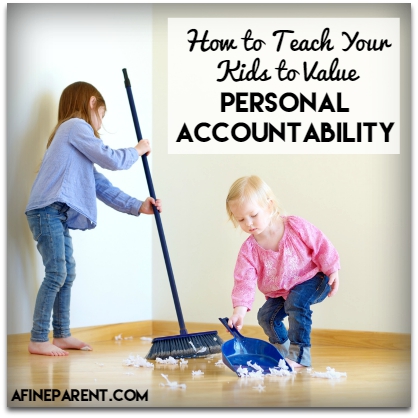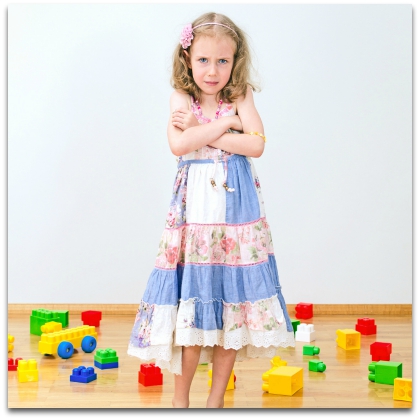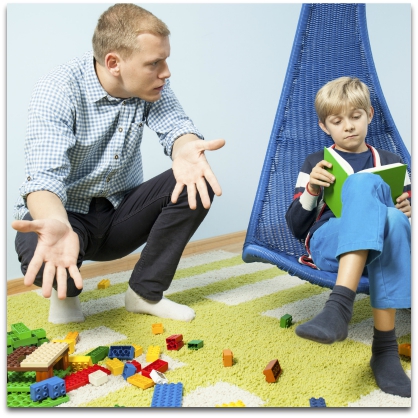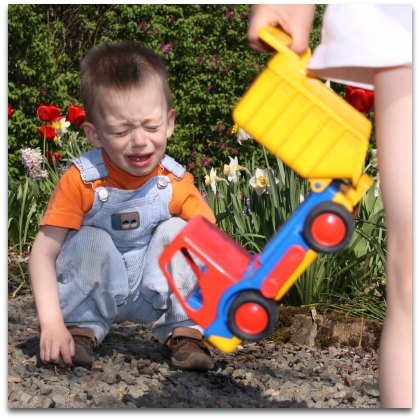 Did you know that one of the most important character traits we can teach our kids is personal accountability? But, how?
Did you know that one of the most important character traits we can teach our kids is personal accountability? But, how?
Accountability is a hard enough concept to explain to a child, never mind teaching them how to make it an integral part of their inner guidance system. If you feel like you are missing out on opportunities to teach this because you’re not sure where to start, you’re not alone. The task does seem daunting.
In my years of parenting, I’ve learnt (and in many cases, mastered) how to nurture and care for my kids. I have potty trained four kids (my kids are 6, 8, 24 and 27) successfully without bribing them with presents (except new underwear and tons of pride). I have spent a lot of time working on how I discipline, not yelling and shaping how I phrase things to avoid hurting their self-esteem. I have taught them the basics of good character – to say please and thank you; to be generous and kind; to maintain a level of humility, and to say they are sorry and fix things when they know they were wrong.
It’s time now to take on some of the more abstract but equally important concepts. Personal accountability is at the top of my list. There is no point after all in raising our kids to achieve great levels of success if they won’t hold themselves accountable to their actions.
Why is Teaching Personal Accountability Important?
Consider for example the Tyco CEO Dennis Kozlowski who stole more than $120 million dollars from company funds, gave himself bonuses of $80 million, which of course was not approved by the company directors, and still claimed innocence. Found guilty in 2002 and sentenced up to 25 years in prison, he maintained that he did nothing wrong.
Another colossal example of a lack of accountability is the BP oil spill in 2010, which dumped more than 180 million gallons of oil into the Gulf of Mexico. Their accountability had to be forced by a federal court that ruled the company was grossly negligent and that they were cutting corners to boost their profits. Though they were responsible for $58 billion in court fees, penalties and clean-up costs, it does not make up for the impact to our environment, all of the wildlife that was lost and the devastation to the livelihoods of fisherman in the Gulf.
I don’t want to be raising kids who go on to achieve great success, but do so with no regards to what is right or wrong. Personal accountability is an important trait in my opinion, and I wonder if we parents are doing enough to teach it.
Here’s the deal though. It is a rather abstract concept to teach. Also, personally, I myself am a work in progress. And because of that, the first step in my “mission accountability” was the hardest.
Ask Yourself Some Tough Questions
Say your son is arguing about cleaning up toys scattered all over the living room floor. He is tired. His face is red, eyes are welling up with the promise of fresh tears and there are signs that an emotional meltdown is imminent if you pursue. Do you hold your parental ground until the task is done?
If you are like me, the answer is a defensive, “sometimes”.
 I am human. I am also a mom of four and I have my breaking points where I just surrender. By the end of the day, I feel like my mission is to simply keep everyone happy and injury-free until I can tuck them into bed. I don’t want another loud, weepy cleanup session that lasts for 45 minutes because they are moving at the speed of a slug caught in slow motion replay.
I am human. I am also a mom of four and I have my breaking points where I just surrender. By the end of the day, I feel like my mission is to simply keep everyone happy and injury-free until I can tuck them into bed. I don’t want another loud, weepy cleanup session that lasts for 45 minutes because they are moving at the speed of a slug caught in slow motion replay.
I don’t know who suffers more: those stuck with the task of cleaning up or me, charged with enforcing the cleanup rule.
I hear myself say “That’s great, let’s keep going! We are almost done! Don’t forget that pile over there.”
They sometimes look at me with a bit of contempt, sputtering about how I am not being fair, how tired they are and how long it is taking to get their task complete.
They start pointing fingers at each other. One of them declares he never played with the Legos, so he certainly won’t be cleaning that up. The other, not wanting to let him get away easy, charges in with “you did too”.
Slowly my resolve to enforce the cleanup rule is becoming weaker. Holding yourself, and those around you, accountable is not easy for any of us. Sometimes, I fail at it.
I have a burning desire for some peace and quiet. I don’t want to arbiter who used which toy and is responsible for cleaning which part of the mess. I stop caring.
I take the easy way out because avoiding one more emotional confrontation is worth anything, including picking up the mess myself.
Small as the issue may seem, I’ve let my kids get away from taking personal accountability for their role in cleaning up the mess they’ve made. Worse still, because we have a cleanup rule in the house, but letting them off the hook, I am sending them the message that they can get away with breaking the rules.
I think to myself “just this once”.
But that’s not the case, is it?
Teaching Personal Accountability is an All-or-Nothing Lesson
Why? Because every time you waver,
- You send mixed signals but expect good results. Children respond to routines and expectations. This is how their behavior is shaped and modeled. If they do not see accountability as something that is expected 100 percent of the time, there is no consistent guideline for their actions.
- You empower your children in the wrong way. When I give in to my kids’ arguments and do not hold them accountable for their actions, my kids are taught that there are loopholes in accountability. They begin to assume they can argue or negotiate their way out of personal responsibility (like the Tyco CEO). I have seen that every time I surrender (telling myself, just this once) and not hold them responsible as I should, their resolve to argue about it the next time becomes stronger. They become little lawyers, defending and arguing about guilt and responsibility because they know the judge (mom) can be lenient.
- You demonstrate that you as a parent are not holding yourself accountable. Children watch what you do and how you handle your own responsibilities. Studies show that your kids model their behavior by watching you. If you don’t uphold the rules because it is easier not to, that is what they learn from the experience.
None of This is Easy, At Least Not at First
 If your children are like mine, they possess the skills to make this lesson as difficult as possible. Mine can argue their case like a gifted attorney and are armed with about one million Legos to unload all over the living room floor each night just to challenge it.
If your children are like mine, they possess the skills to make this lesson as difficult as possible. Mine can argue their case like a gifted attorney and are armed with about one million Legos to unload all over the living room floor each night just to challenge it.
Who dumped the Legos? Was it a group effort or did one child do most of the damage? Is someone being roped into the cleanup who did not actually play with any of the said Lego-mess on the floor? Suddenly I am half parent, half detective.
The trick is to get your kids to the point where they recognize what they are each personally accountable for, so you can turn in your detective badge.
They need to know that this responsibility goes for any task; taking out the garbage, putting their dishes in the dishwasher, cleaning their room before they get to do any special activity and even owning up to when they make a mistake or a poor choice in behavior.
Lead by Example
My job is to teach them ways to develop in character, and I develop as a parent the more I hold myself accountable for what they know, and do not know, about being a responsible human being.
I believe that there are many ways that a parent can still cut themselves a break, like ordering take out for dinner, extending bedtime on special occasions or holding those exhausting birthday parties at the local playground rather than bringing 15 children into your home. But cutting corners on important lessons regarding your child’s character is not the way to provide yourself that much needed break. In other words, don’t surrender because it is easier!
You are accountable for your children learning accountability.
Explain What Accountability Means in Terms They Understand
 So, where do we start? Breaking down the concept of accountability in a way that kids can understand it is a good place, in my opinion.
So, where do we start? Breaking down the concept of accountability in a way that kids can understand it is a good place, in my opinion.
When my son was bullied on the school bus it was both upsetting and confusing to him. The other boy had been picking on him and one day decided to knock my son on the head with a large toy truck. Later, the child denied the incident and even said he did not own a toy truck. Even after the truck was discovered in the boy’s backpack, he continued to deny the incident.
I used this moment with my kids for a discussion about accountability and how it feels when someone does something to you and does not own up to it. Discussing those feelings drove the message home for my kids. I think it taught them a little about empathy for others feelings when they make bad choices and someone else suffers because of it. Realizing their behavior can cause discomfort to others is a great way to prompt your child to be accountable for their actions in the future.
Great, Now How Do I Teach Them to Actually be Accountable?
At empoweringparents.com, counselor Megan Devine suggests parents create a culture of personal accountability within their home, which means that everyone in the family is responsible for their own behavior and actions.
This means everyone must follow house rules and expectations and will be held accountable for how they behave during arguments. The idea is that by setting a culture of accountability, kids avoid that negative pattern of justifying their behavior with excuses and learn instead to take responsibility.
Here’s the breakdown of what we need to do:
- Set consequences: If your child doesn’t live up to their responsibilities or follow the rules there has to be consequences. As a parent, you must set these beforehand so your child knows about them. You also must stick to them when they do not follow the rules.
- Make rules/consequences very clear: Children are great at maneuvering out of responsibility. Close the loopholes. For example, if there is no pushing or shoving allowed between siblings, then that is the rule, no matter what the reason or who started the altercation. If pushing occurs, then that child has to deal with whatever consequence was previously agreed upon. Period.
- Discuss what they can do: Don’t just say that they are not allowed to push their sibling when they are angered, but suggest actions they are allowed so they can deal with those feelings. Kids often don’t know what the right response actually is, so give examples of what they can do, like talk to mom or dad, remove themselves from the situation, drawing a picture of how they feel, or let out their feelings by kicking a ball around the yard or riding their bike.
- Remind or cue your child: If you see your child about to dump out the toy box remind them that they will have to pick everything back up when they are done. Cue them about the expectation and what actions they will have to take to be accountable for their actions.
- Be consistent: Accountability cannot be a “sometime” rule and be respected. Set the expectations and stick to the consequences you set. Don’t spout out a consequence you will not enforce. I used to be very guilty of that one. It sounded great to say, “No playing outside after dinner,” until it was actually after dinner and I really wanted them to play outside.
Like all parents, I dream that my kids will grow up to be happy, raising families of their own and successful in whatever they choose to pursue. And whether it is personal well-being, the joy of family or success in a career, I know they won’t get too far without taking personal accountability for their actions. It is a difficult lesson to teach. But, when I consider the implications of not teaching it, I’m willing to put my weariness aside and dig in my heels.
Mission accountability, here I come.
The 2-Minute Action Plan for Fine Parents
Ok, so for our 2-minute action plan, here are the questions –
- Are there times you don’t hold your kids responsible for their actions? What is the reason you let things slide?
- What is the most frequent offence or misbehavior that you can focus on first? Take baby steps with this. Pick one small thing (like no name calling) and set a rule and consequences. Write it down. This supports the commitment.
The Ongoing Action Plan for Fine Parents
I believe as a parent, the determining factor in raising someone to have this precious character trait is to explain its value (not just “because I said so”), discuss how people who lack accountability make others feel, and set expectations for accountability as well as consequences for when they are not met. We need to lead by example and hold ourselves accountable to guiding the growth of our children’s character.
Monitor your success, and theirs, for the next week. Move forward to another rule or expectation when you feel the first one has been well established. Offer positive reinforcement and praise when you catch them being responsible and never give up. We are all works in progress.
Thank you for this article, which exposes an everyday struggle faced by parents who want to teach their children responsibility.
Setting expectations for task-completion and modeling them is an important component to this task. However, the WAY you do that is important. True responsibility means that a person cares about other people and modifies their behavior to take them into consideration. We can’t teach that if we don’t do the same!
If you simply hold the line on the task in the moment, in the name of what is correct, when your child is asking for a modification, you will be blocking compassion (for them and for yourself) and creating distance between you, which then weakens your position of influence as they get older, and pulls you into a policing job. (Ok, so now they are cleaning the playroom, but how well are they doing it?)
Instead, I would encourage parents to hear the objections or requests of their children in the moment they arise, and empathize with them.
If your child isn’t too distressed, “holding the line” on personal responsibility from here may mean that once they feel heard, you share your own vulnerable reasons for why you want them to do it.
“I hear you are tired, but I’m worried because Gramma arrives tomorrow and she might fall if these toys aren’t picked up. Are you able to complete the job tonight?”
Maybe the answer is no, and they promise to get up early to do it. Negotiation here IS teaching personal responsibility.
Or maybe you are met with tears and a refusal and the unclean playroom remains a short-term problem that you, as an adult, decides what to do with.
But after that refusal, you don’t just leave it there. You go back at a calm time and find out what prevented your child from cooperating. You let them be heard. Then you can also let them in on the reality that you love them and are really wanting them to learn personal responsibility. You invite them to come up with a way that, next time, they will be able to get that playroom clean. And you proceed from there.
I believe that this is actually the most effective way to “hold the line” and also the most efficient way to teach the type of responsibility that includes but also exceeds task-completion —and becomes a part of your child’s true character.
All of this is based on Nonviolent Communication, which taps into what it is to be human.
Peace.
haha
Personal accountability is such an important trait! It sounds like you’ve really used some good “teachable moments” to show your kids how to take responsibility for themselves and the consequences to others when people don’t do it.
I would argue that personal responsibility can be taught without punishing kids. I might even argue that punishing kids can undermine the lesson of personal responsibility because it shifts attention to the kid’s experience (anger, sadness, possibly revenge-seeking) rather than on the actual effects of the behavior.
“But cutting corners on important lessons regarding your child’s character is not the way to provide yourself that much needed break.”
And all the people said, AMEN!
I love this because I get tired.
Really, really tired.
I have 18-, 15-, and 12-year-old kids. I thought the lessons (in character, as well as other lessons) would get easier as they grew up.
In some ways, it did – it has.
In other ways, it became a shifting challenge.
Either way, I agree that consistency is key.
And I wish more parents chose to claim the same measure of responsibility they want to see in their children.
Yes the days are long, but the years are short. Believe me there is a life after raising children. Praise God. It is worth every moment of “pushing yourself” to make it till you can flop into bed knowing that you have given everything you are and everything you are not (that’s where God steps in Phillipians 4:13) when——-your son or daughter repeats the cycle with their own children. You cheer them on and support them in every way. Hang in there the best is yet to come. Mother of 5, group home parent etc.
Good morning Barbara, I want to take this time to thank you for the amazing and oh so helpful article you have written and shared with many parents. I have a 10 year old boy and reading this article has definitely opened my eyes to how I have been making a big mistake and not showing my son to be accountable for his actions and behavior. I guess I’ve been that “sometime” parent and have made bad choices. My son is such a kind hearted soul and I couldn’t understand why he would turn into this super mini lawyer at times and now I know why. These events of not taking accountability have even started affecting my relationship with my fiancé. At times as parents we think we’re doing the right thing and we dont realize that we’re hurting our kids instead. Thank you so much for writing this article, it’s been a true blessing. God bless you and your family always.